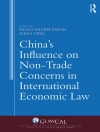Though he was a recipient of both the Pulitzer Prize and the Nobel Prize for Literature, American novelist John Steinbeck (1902–1968) has frequently been censored. Even in the twenty-first century, nearly ninety years after his work first appeared in print, Steinbeck’s novels, stories, and plays still generate controversy: his 1937 book Of Mice and Men was banned in some Mississippi schools in 2002, and as recently as 2009, he made the American Library Association’s annual list of most frequently challenged authors.
A Political Companion to John Steinbeck examines the most contentious political aspects of the author’s body of work, from his early exploration of social justice and political authority during the Great Depression to his later positions regarding domestic and international threats to American policies. Featuring contemporaneous and present-day interpretations of his novels and essays by historians, literary scholars, and political theorists, this book covers the spectrum of Steinbeck’s writing, exploring everything from his place in American political culture to his seeming betrayal of his leftist principles in later years.
Table of Content
Introduction: The Dangerous Ambivalence of John Steinbeck
Revolutionary Conservative, Conservative Revolutionary?
Star Signals
The Novelist as Playwright
Steinbeck and the Tragedy of Progress
Group Man and the Limits of Working-Class Politics
The Indifference of Nature and the Cruelty of Wealth
‘The Technique of Building Worlds’
Focusing on the Migrant
Participatory Parables
‘Not Afraid of Being Heroic’
Retelling an American Political Tale
Patriotic Ironies
John Steinbeck’s Shifting View of America
‘Can You Honestly Love a Dishonest Thing?’
About the author
Simon Stow is associate professor in the Department of Government at the College of William and Mary. He is the author of Republic of Readers? The Literary Turn in Political Thought and Analysis.












